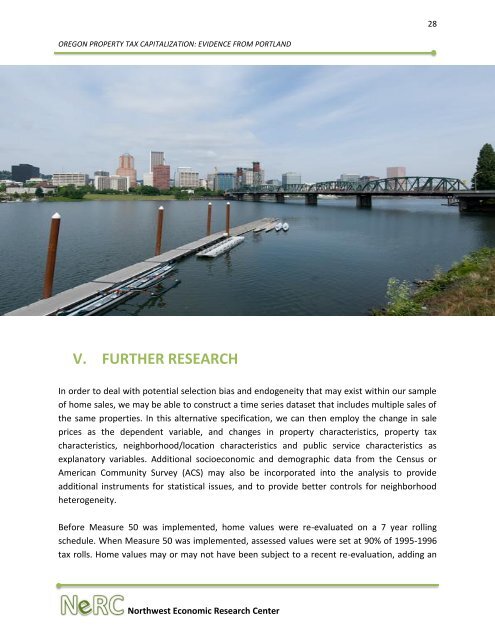Report-Oregon-Property-Tax-Capitalization-FINAL
Report-Oregon-Property-Tax-Capitalization-FINAL
Report-Oregon-Property-Tax-Capitalization-FINAL
You also want an ePaper? Increase the reach of your titles
YUMPU automatically turns print PDFs into web optimized ePapers that Google loves.
28<br />
OREGON PROPERTY TAX CAPITALIZATION: EVIDENCE FROM PORTLAND<br />
V. FURTHER RESEARCH<br />
In order to deal with potential selection bias and endogeneity that may exist within our sample<br />
of home sales, we may be able to construct a time series dataset that includes multiple sales of<br />
the same properties. In this alternative specification, we can then employ the change in sale<br />
prices as the dependent variable, and changes in property characteristics, property tax<br />
characteristics, neighborhood/location characteristics and public service characteristics as<br />
explanatory variables. Additional socioeconomic and demographic data from the Census or<br />
American Community Survey (ACS) may also be incorporated into the analysis to provide<br />
additional instruments for statistical issues, and to provide better controls for neighborhood<br />
heterogeneity.<br />
Before Measure 50 was implemented, home values were re-evaluated on a 7 year rolling<br />
schedule. When Measure 50 was implemented, assessed values were set at 90% of 1995-1996<br />
tax rolls. Home values may or may not have been subject to a recent re-evaluation, adding an<br />
Northwest Economic Research Center


